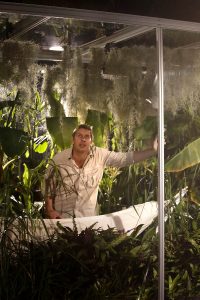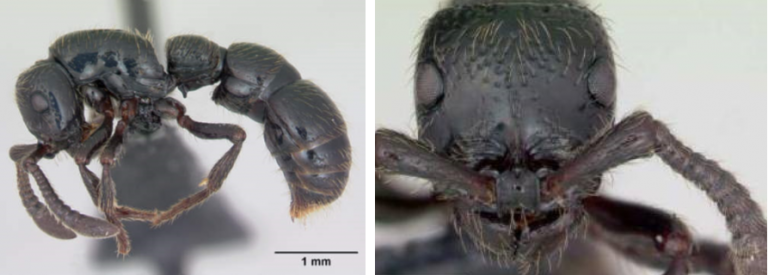I went down to Cornwall once and they put me in a box. An air-tight box. In the Eden Project. For two days. Inside, researchers took the oxygen content down from 21% to 12%, and then waited to see if a glass container packed with high-photosynthesising plants could take in the carbon dioxide from my breathing and re-establish normal oxygen levels. It nearly worked – well, at least I lived – but the point is that being vitally dependent on a few square metres of green foliage for 48 hours doesn’t half focus your mind on just how fragile and critical our relationship with the natural world is.

It is a dependence that I’m only too aware of in my role as Director of the University of Plymouth’s ‘Sustainable Earth Institute’. I’m a geologist by background – my research focuses on geological hazards like earthquakes, tsunamis and volcanic eruptions. But in the last 15 years I’ve developed a partnership with BBC television – making documentaries about our planet, how it works, and what it means for those of us living on it. Today, I’m Plymouth’s Professor of Geoscience Communication, and a UNESCO Chair in Geoscience and Society. Which means that I spend an awful lot of time talking to ordinary people about how amazing our planet is.
Which is what brought me back, nervously, to Cornwall. Because the United Downs Deep Geothermal Power Project presents a wonderful new challenge to communicate the importance of the geological subsurface to the public. As we shift from a high-carbon fossil fuel past to a low-carbon renewable energy future, the internal heat of the Earth from Cornwall’s ancient granite core promises to be a valuable addition to the UK’s future energy mix. Making sure that local communities in the South West understand the potential of geothermal energy, and also that their concerns over its exploitation are fully considered, is an important step on the road to Britain’s energy transition.
It’s all part of a wider desire to make geological understanding an integral part of delivering sustainable development challenges across the globe. A desire to make sure that the natural life support systems of our planet are maintained whilst allowing humanity to progress and flourish. It’s a fine balancing act, where the devil is in the detail. Like in the undergrowth of pristine Madagascaran rain forest, where a species of carnivorous ant signals a thriving Eden. An ant named after a distant Scottish geologist. Cerapachys Iainstewarti!

Professor of Geoscience Communication and Director of the Sustainable Earth Institute, University of Plymouth
UNESCO Chair in Geoscience and Society

The United Downs Deep Geothermal Power Project is a partnership of organisations exploring if geothermal power is a viable energy resource for the UK. It is part-funded by the European Regional Development Fund and Cornwall Council.


[…] here at the SEI is made up of lots of people from different backgrounds (Nicola, Francesca, Hazel, Iain) we use a combination of different methods to help us find out what people in Cornwall and beyond […]